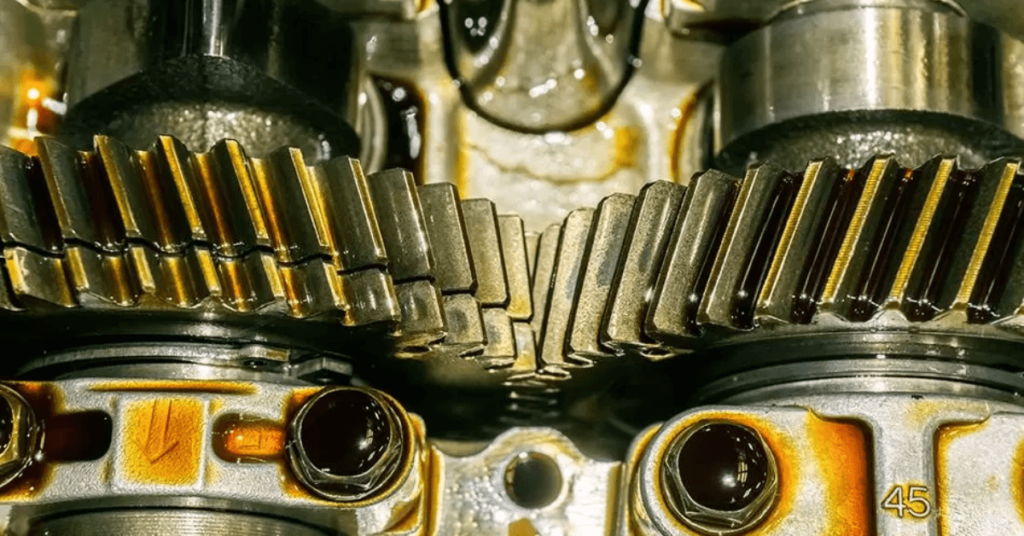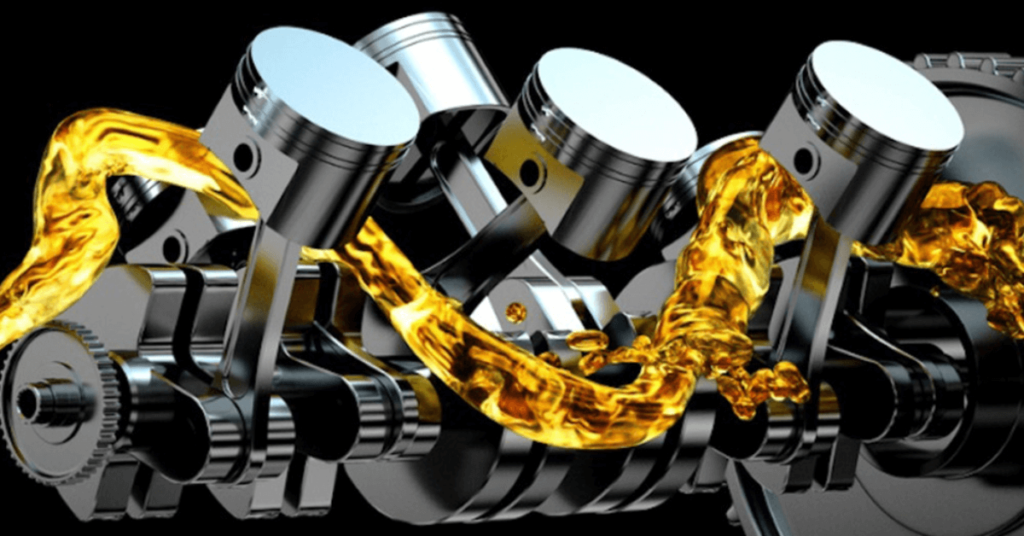Electric generators are devices that convert mechanical energy into electrical energy, and they are used to provide electricity in a variety of settings, such as in homes, businesses, and industries. Proper lubrication is crucial for the optimal functioning of these machines.
In this context, lubrication refers to the application of a substance, usually oil or grease, to the moving parts of the generator to reduce friction, dissipate heat, and prevent wear and tear. This ensures the generator runs efficiently and reliably, while also extending its lifespan. In the following sections, we will explore the different types of lubrication, the importance of proper lubrication for electric generators, and the consequences of improper lubrication.

A Brief Explanation Of Electric Generators And Their Function
An electric generator is a machine that converts mechanical energy into electrical energy. It does this by using the principle of electromagnetic induction, which involves rotating a coil of wire within a magnetic field to generate an electrical current.
The mechanical energy required to rotate the coil can come from various sources, such as steam turbines, gas turbines, wind turbines, or water turbines. The electrical energy produced by the generator is typically used to power electrical devices, appliances, and systems. Electric generators are commonly used in a variety of settings, including homes, businesses, industries, and power plants.
Importance Of Proper Lubrication
Proper lubrication is essential for the optimal functioning and longevity of electric generators. When generators operate, their moving parts, such as bearings and gears, create friction that can cause wear and tear. Without proper lubrication, this friction can lead to increased heat, reduced efficiency, and even permanent damage to the generator. Lubrication helps reduce friction between these moving parts, which prevents them from wearing down and overheating.
In addition to reducing friction, lubrication helps dissipate heat generated by the generator’s operation, which helps prevent overheating. When the generator operates at high temperatures, its components can become damaged, leading to costly repairs or even replacement of the entire unit. Proper lubrication also helps improve the efficiency of the generator, reducing energy waste and saving money on operating costs.
Overall, proper lubrication helps extend the lifespan of the generator and reduces the frequency and cost of maintenance and repairs. In summary, proper lubrication is crucial for ensuring that electric generators operate efficiently, reliably, and safely over the long term.
Types Of Lubrication

There are two main types of lubrication that are commonly used for electric generators: oil-based lubrication and grease-based lubrication.
Oil-based lubrication involves applying oil to the moving parts of the generator using an oil bath or by circulating the oil through the generator’s components. This type of lubrication is most commonly used for large generators that operate at high speeds and temperatures. Oil has a lower viscosity than grease, allowing it to flow more easily and reach more intricate parts of the generator.
Grease-based lubrication, on the other hand, involves applying a thick, viscous substance called grease to the moving parts of the generator. This type of lubrication is often used in smaller generators and in areas where oil-based lubricants may not be practical or effective. Grease provides better adhesion to the surfaces it lubricates and is less likely to drip or leak than oil.
Both types of lubrication have their advantages and disadvantages. Oil-based lubrication is more effective at dissipating heat and can reach more intricate parts of the generator, but it can be messy and more difficult to apply. Grease-based lubrication is easier to apply and less likely to drip or leak, but it may not be as effective at dissipating heat and may not be suitable for high-speed or high-temperature applications.
In summary, the choice of lubrication depends on the specific needs and characteristics of the electric generator and the environment in which it operates.
Oil-Based Lubrication
Oil-based lubrication is a common type of lubrication used in electric generators. This type of lubrication involves the application of oil to the moving parts of the generator to reduce friction, dissipate heat, and prevent wear and tear. Oil-based lubrication can be applied using an oil bath or by circulating the oil through the generator’s components.
Oil-based lubricants have several advantages. They have a lower viscosity than grease, allowing them to flow more easily and reach more intricate parts of the generator. This makes them suitable for use in large generators that operate at high speeds and temperatures. Additionally, oil-based lubricants are more effective at dissipating heat, which helps prevent overheating and damage to the generator’s components.
However, oil-based lubrication also has some disadvantages. It can be messy and more difficult to apply than grease-based lubrication. Additionally, oil-based lubricants may leak or drip if not applied properly, which can cause damage to other components or create a hazard in the generator’s environment.
Overall, oil-based lubrication is a highly effective type of lubrication for electric generators, but it should be applied carefully and with attention to the specific needs and characteristics of the generator. Proper maintenance and monitoring of the oil levels and quality are also crucial for ensuring optimal generator performance and longevity.
Grease-Based Lubrication
Grease-based lubrication is another common type of lubrication used in electric generators. This type of lubrication involves the application of a thick, viscous substance called grease to the moving parts of the generator to reduce friction, dissipate heat, and prevent wear and tear.
Grease-based lubricants have several advantages. They are easier to apply than oil-based lubricants and are less likely to leak or drip, making them suitable for use in smaller generators and in areas where oil-based lubricants may not be practical or effective. Additionally, grease-based lubricants provide better adhesion to the surfaces they lubricate, which helps prevent metal-to-metal contact and reduces wear and tear on the generator’s components.
However, grease-based lubrication also has some disadvantages. Grease is not as effective at dissipating heat as oil-based lubricants, which may limit its suitability for high-speed or high-temperature applications. Additionally, grease-based lubricants can be more difficult to remove and clean than oil-based lubricants.
Overall, grease-based lubrication is an effective type of lubrication for electric generators, but it should be used with attention to the specific needs and characteristics of the generator. Proper maintenance and monitoring of the grease levels and quality are also crucial for ensuring optimal generator performance and longevity.
Advantages And Disadvantages Of Each Type
Here are the advantages and disadvantages of each type of lubrication:
Advantages of oil-based lubrication:
- Lower viscosity allows it to flow more easily and reach more intricate parts of the generator
- More effective at dissipating heat, which helps prevent overheating and damage to the generator’s components
Disadvantages of oil-based lubrication:
- Messy and more difficult to apply than grease-based lubrication
- May leak or drip if not applied properly, which can cause damage to other components or create a hazard in the generator’s environment
Advantages of grease-based lubrication:
- Easier to apply than oil-based lubrication and less likely to leak or drip
- Provides better adhesion to the surfaces it lubricates, which helps prevent metal-to-metal contact and reduces wear and tear on the generator’s components
Disadvantages of grease-based lubrication:
- Not as effective at dissipating heat as oil-based lubricants, which may limit its suitability for high-speed or high-temperature applications
- More difficult to remove and clean than oil-based lubricants
- Overall, the choice of lubrication depends on the specific needs and characteristics of the electric generator and the environment in which it operates. Both types of lubrication have their advantages and disadvantages, and proper maintenance and monitoring of the lubricant levels and quality are crucial for ensuring optimal generator performance and longevity.
Importance Of Proper Lubrication For Electric Generators
Proper lubrication is essential for the optimal performance and longevity of electric generators. The moving parts of the generator, such as bearings and gears, are subject to friction and wear and tear during operation. Lubrication reduces friction and dissipates heat, preventing damage and extending the life of these components.
If the generator is not properly lubricated, the moving parts can wear out more quickly, leading to decreased performance and eventual failure of the generator. Additionally, insufficient or improper lubrication can cause overheating and damage to the generator’s components, resulting in costly repairs or replacements.
Proper lubrication also reduces the risk of downtime and improves the reliability of the generator. Regular lubrication and maintenance can help detect and prevent potential issues before they lead to a breakdown or failure.
In conclusion, proper lubrication is crucial for the optimal performance, reliability, and longevity of electric generators. The choice of lubrication depends on the specific needs and characteristics of the generator and the environment in which it operates, and proper maintenance and monitoring of the lubricant levels and quality are crucial for ensuring optimal generator performance and longevity.
Reduces Friction And Wear On Moving Parts
Proper lubrication is important for reducing friction and wear on the moving parts of electric generators. During operation, the moving parts of the generator, such as bearings and gears, are subjected to friction that can cause wear and tear. Lubrication reduces this friction by creating a thin layer of lubricant between the moving parts, which helps them to move more smoothly and without rubbing against each other.
Reducing friction and wear on the moving parts of the generator has several benefits. Firstly, it prevents damage and extends the life of these components, which ultimately improves the reliability and longevity of the generator. Secondly, it reduces the amount of energy required to operate the generator, which can result in increased efficiency and lower energy costs.
Proper lubrication also helps to dissipate heat, which is generated by the friction between the moving parts. By reducing the heat generated, lubrication helps prevent overheating of the generator’s components, which can lead to damage and decreased performance.
In conclusion, proper lubrication is essential for reducing friction and wear on the moving parts of electric generators. This helps to extend the life of the generator, improve its reliability and efficiency, and prevent damage and costly repairs.
Helps Dissipate Heat And Prevent Overheating
Another important function of proper lubrication for electric generators is that it helps dissipate heat and prevent overheating. During operation, the friction between the moving parts generates heat. If the heat is not effectively dissipated, it can cause the generator’s components to overheat, leading to damage and decreased performance.
Lubrication helps dissipate heat by creating a thin layer of lubricant between the moving parts. This layer acts as a barrier that helps to distribute the heat more evenly across the surface of the components. The lubricant can also absorb and carry away some of the heat, which helps to reduce the temperature of the generator’s components.
By helping to dissipate heat, proper lubrication can prevent overheating and its associated problems, such as component damage, decreased efficiency, and potential safety hazards. It can also extend the life of the generator by reducing the wear and tear caused by excessive heat.
In conclusion, proper lubrication is crucial for preventing overheating and ensuring optimal performance and longevity of electric generators. The lubrication helps to dissipate the heat generated by friction, reducing the risk of damage, improving efficiency, and increasing safety.
Improves Efficiency And Extends The Lifespan Of The Generator
Proper lubrication of electric generators not only reduces friction, prevents overheating, and ensures reliable performance, but it also improves efficiency and extends the lifespan of the generator.
Efficiency is improved because proper lubrication reduces the amount of energy required to operate the generator. When the moving parts are well-lubricated, there is less resistance and friction, which means that the generator can run more smoothly and efficiently. This can result in lower energy costs, as the generator requires less fuel or electricity to produce the same amount of power.
In addition to improving efficiency, proper lubrication also extends the lifespan of the generator. When the moving parts are well-lubricated, there is less wear and tear on the components, which can help prevent breakdowns and reduce the need for costly repairs. The generator’s overall lifespan is also extended because well-lubricated components are less likely to fail or break down prematurely.
Regular lubrication and maintenance can also help detect and prevent potential issues before they become major problems. By monitoring the lubricant levels and quality, technicians can identify any abnormal wear patterns or other signs of potential issues, and take corrective action before they cause significant damage or lead to downtime.
In conclusion, proper lubrication is essential for improving efficiency and extending the lifespan of electric generators. It reduces wear and tear on the moving parts, improves efficiency, and helps prevent breakdowns and costly repairs. Regular lubrication and maintenance are necessary to ensure optimal performance and longevity of the generator.
Reduces Maintenance And Repair Costs
Proper lubrication of electric generators can also significantly reduce maintenance and repair costs. When the moving parts of the generator are well-lubricated, they experience less friction, wear, and tear, which means they require less maintenance and repair.
Regular lubrication and maintenance of the generator can help identify and address issues before they become major problems, which can save time and money in the long run. By monitoring the lubricant levels and quality, technicians can identify any abnormal wear patterns or other signs of potential issues, and take corrective action before they cause significant damage or lead to downtime.
Additionally, proper lubrication can help prevent breakdowns and failures that can result in costly repairs and downtime. Overheating caused by insufficient lubrication can cause damage to components, which can require expensive repairs or even replacement of the generator. On the other hand, a well-lubricated generator is less likely to experience breakdowns and other issues that can cause downtime and lost productivity.
In conclusion, proper lubrication is a cost-effective way to reduce maintenance and repair costs associated with electric generators. It can help identify and address issues before they become major problems, prevent breakdowns and failures, and extend the lifespan of the generator. Regular lubrication and maintenance should be a part of any generator maintenance program to ensure optimal performance and cost-effectiveness.
Consequences Of Improper Lubrication
Improper lubrication of electric generators can have serious consequences, both in terms of performance and safety. Here are some of the potential consequences of improper lubrication:
- Increased friction and wear: When the moving parts of a generator are not properly lubricated, friction can increase, leading to excessive wear and tear on the components. This can cause the generator to operate less efficiently and can reduce its lifespan.
- Overheating: Without proper lubrication, heat generated by friction cannot be dissipated effectively, leading to overheating of the generator’s components. Overheating can cause damage to the generator’s insulation and wiring, as well as to other components, and can ultimately lead to the failure of the generator.
- Increased energy consumption: When friction increases due to improper lubrication, the generator requires more energy to operate, resulting in increased energy consumption and higher operating costs.
- Safety hazards: Overheating caused by improper lubrication can create safety hazards such as fires or explosions. Additionally, increased friction and wear can cause the generator to malfunction, leading to potential safety hazards for operators and others in the vicinity.
- Costly repairs and downtime: Improper lubrication can cause premature wear and tear on the generator’s components, resulting in costly repairs and downtime. It can also cause breakdowns that require emergency repairs, further adding to the costs.
In conclusion, improper lubrication can have serious consequences for electric generators, including reduced efficiency, decreased lifespan, safety hazards, increased energy consumption, and costly repairs and downtime. Regular lubrication and maintenance are essential for preventing these issues and ensuring optimal performance and safety of the generator.
Increased Friction And Wear On Moving Parts
When electric generators are not properly lubricated, the moving parts can experience increased friction and wear. This is because the lubricant helps reduce the friction between the parts, allowing them to move more smoothly and with less resistance. Without proper lubrication, the parts can rub against each other, causing friction and leading to excessive wear and tear.
Over time, this increased friction and wear can cause the components to degrade, leading to reduced efficiency and ultimately to the failure of the generator. Additionally, the increased friction can cause the generator to consume more energy than necessary, leading to higher operating costs.
Proper lubrication helps reduce friction and wear, extending the lifespan of the generator’s components and improving its efficiency. Regular lubrication and maintenance can also help identify and address issues before they become major problems, reducing the risk of downtime and expensive repairs.
In conclusion, proper lubrication is essential for reducing friction and wear on the moving parts of an electric generator. Without it, the generator’s efficiency can suffer, its lifespan can be shortened, and it may ultimately fail, resulting in downtime and costly repairs.
Higher Operating Temperatures And Risk Of Overheating
Improper lubrication of electric generators can also lead to higher operating temperatures and an increased risk of overheating. This is because the lubricant helps dissipate heat generated by friction between the moving parts of the generator. Without proper lubrication, the heat cannot be effectively dissipated, causing the generator to run hotter than it should.
Overheating can cause damage to the generator’s components, insulation, and wiring. In severe cases, it can lead to fires or explosions, creating serious safety hazards for operators and others in the vicinity. In addition to safety risks, overheating can also cause the generator to operate less efficiently, reducing its lifespan and increasing its operating costs.
Proper lubrication helps prevent overheating by reducing friction and allowing heat to be dissipated effectively. Regular lubrication and maintenance can also help identify and address issues before they lead to overheating, reducing the risk of costly repairs and downtime.
In conclusion, proper lubrication is essential for preventing overheating and reducing the risk of safety hazards associated with electric generators. Regular lubrication and maintenance can help identify and address issues before they become major problems, ensuring optimal performance and safety of the generator.
Reduced Efficiency And Performance
Improper lubrication can also reduce the efficiency and performance of electric generators. Without proper lubrication, the friction between the moving parts of the generator can increase, causing it to require more energy to operate. This increased energy consumption can lead to higher operating costs and reduced efficiency.
Furthermore, if the generator is not properly lubricated, its performance can be negatively impacted. It may produce less power or operate less smoothly, resulting in reduced output or potential damage to the generator’s components.
Proper lubrication is essential for maintaining the efficiency and performance of electric generators. Regular lubrication and maintenance help reduce friction between the moving parts of the generator, allowing it to operate more efficiently and smoothly. This not only improves the generator’s performance but also reduces operating costs, making it more cost-effective over the long term.
In conclusion, proper lubrication is crucial for maintaining the efficiency and performance of electric generators. Without it, the generator may require more energy to operate, resulting in higher operating costs and reduced output. Regular lubrication and maintenance help ensure optimal performance and efficiency, reducing costs and extending the lifespan of the generator.
Shorter Lifespan Of The Generator
Improper lubrication of electric generators can also lead to a shorter lifespan of the generator. As previously mentioned, improper lubrication can cause increased friction, overheating, and reduced efficiency, which can all contribute to the degradation of the generator’s components.
Over time, the increased wear and tear caused by insufficient lubrication can cause the generator’s components to fail, leading to costly repairs or replacement. This can result in downtime and lost productivity, as well as higher operating costs associated with repairing or replacing the generator.
Proper lubrication is essential for extending the lifespan of electric generators. By reducing friction and wear, proper lubrication helps ensure that the generator’s components remain in good condition and operate optimally over time. Regular lubrication and maintenance can also help identify and address potential issues before they lead to component failure, further extending the lifespan of the generator.
In conclusion, proper lubrication is crucial for ensuring the longevity of electric generators. Without it, the generator’s components may degrade more quickly, leading to costly repairs or replacement and downtime. Regular lubrication and maintenance help extend the lifespan of the generator and reduce operating costs associated with repair or replacement.
Higher Maintenance And Repair Costs
Improper lubrication of electric generators can lead to higher maintenance and repair costs. If the generator is not properly lubricated, increased friction can cause accelerated wear and tear on its components, leading to the need for more frequent maintenance and repairs.
Additionally, if the generator experiences overheating or component failure due to insufficient lubrication, the cost of repairs or replacement can be significant. This can result in downtime and lost productivity, as well as increased operating costs associated with repairing or replacing the generator.
Proper lubrication is essential for reducing maintenance and repair costs associated with electric generators. By reducing friction and wear, proper lubrication helps ensure that the generator’s components remain in good condition and require less frequent maintenance and repairs. Regular lubrication and maintenance can also help identify and address potential issues before they lead to costly repairs or replacement.
In conclusion, proper lubrication is crucial for minimizing maintenance and repair costs associated with electric generators. Without it, the generator may require more frequent maintenance and repairs, leading to increased operating costs and downtime. Regular lubrication and maintenance help extend the lifespan of the generator and reduce operating costs associated with repair or replacement.
Frequently Asked Questions (FAQs)
Why is proper lubrication important for electric generators?
Proper lubrication is important for electric generators because it reduces friction and wears on moving parts, helps dissipate heat and prevent overheating, improves efficiency and extends the lifespan of the generator, and reduces maintenance and repair costs.
What are the consequences of improper lubrication?
Improper lubrication can cause increased friction and wear on moving parts, higher operating temperatures and risk of overheating, reduced efficiency and performance, and a shorter lifespan of the generator. It can also lead to higher maintenance and repair costs.
What are the types of lubrication for electric generators?
The two main types of lubrication for electric generators are oil-based lubrication and grease-based lubrication. Oil-based lubrication is a thin liquid that is distributed through the generator’s system, while grease-based lubrication is a thicker substance that is applied to specific components.
How often should an electric generator be lubricated?
The frequency of lubrication for an electric generator depends on several factors, including the type of lubrication used, the generator’s operating conditions, and the manufacturer’s recommendations. It is generally recommended to lubricate the generator at least once a year, but more frequent lubrication may be necessary in certain situations.
What happens if an electric generator is not properly lubricated?
If an electric generator is not properly lubricated, it can lead to increased wear and tear on its components, reduced efficiency, overheating, and a shorter lifespan. It can also result in higher maintenance and repair costs and downtime.
Conclusion
In conclusion, proper lubrication is essential for the efficient and reliable operation of electric generators. The use of appropriate lubricants, such as oil or grease, can reduce friction and wear on moving parts, prevent overheating, and extend the lifespan of the generator. Regular lubrication and maintenance can also help identify and address potential issues before they become major problems.
On the other hand, improper lubrication can have serious consequences for the generator, including increased operating temperatures, reduced efficiency and performance, and a shorter lifespan. This can result in higher maintenance and repair costs, as well as downtime and lost productivity.
Therefore, it is important to follow the manufacturer’s recommendations for lubrication and maintenance, as well as to monitor the generator’s performance regularly. By taking these steps, you can help ensure that your electric generator operates efficiently and reliably, with minimal downtime and operating costs.




